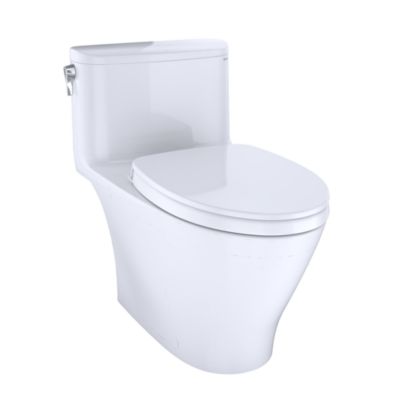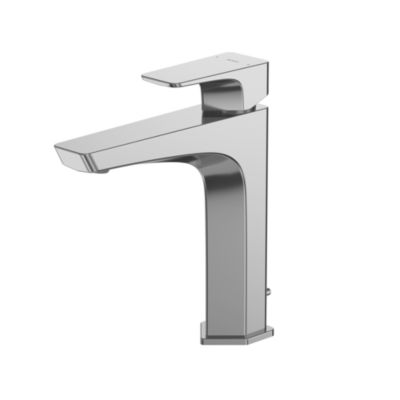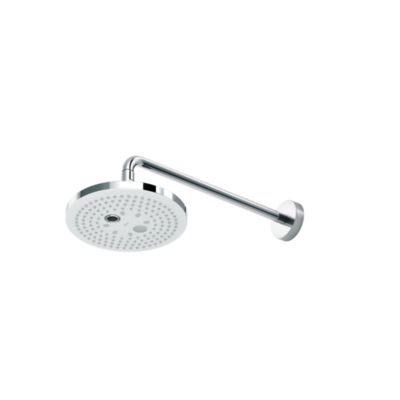Embracing Sustainability: Transformative Trends in the Plumbing Industry
 (L-R) Cambria McLeod, Jerry Desmond, Stephanie Salmon, Gordon Tai, Kerry Stackpole, and Fernando Fernandes engage in a thought-provoking discussion of the depths of plumbing innovation and the currents of thought in sustainability.
(L-R) Cambria McLeod, Jerry Desmond, Stephanie Salmon, Gordon Tai, Kerry Stackpole, and Fernando Fernandes engage in a thought-provoking discussion of the depths of plumbing innovation and the currents of thought in sustainability.
In recent decades, our society has experienced a paradigm shift in how we view environmental resources. Once seen as limitless and abundantly available, we have now entered an era where the importance of water and energy has become abundantly clear, a world where the depletion of these vital natural resources is far more conceivable.
The plumbing industry stands at the forefront of the water and energy sustainability revolution. As a result, the topic was trending in discussions held at the Kitchen and Bath Industry Show (KBIS) 2024. TOTO joined the conversation by hosting and broadcasting the engaging panel discussion, “Flowing Forward: Sustainable Solutions in Plumbing Trends, Innovations, and Challenges,” which featured esteemed experts, including leaders from The International Association of Plumbing & Mechanical Officials (IAPMO), Plumbing Manufacturers International (PMI), legislative and governmental environmental sustainability advocates, and respected plumbing industry professionals.
Moderated by Fernando Fernandez, Senior Director of Codes and Standards for TOTO USA, the panelists delved into the impact of technological innovations and new environmental policies on the plumbing industry. They discussed the effects on sustainability, water conservation, the plumbing industry at large, and communities reliant on the plumbing infrastructure.
Topics covered everything from water flow rate regulations, federal and state-funded public health and safety programs, the industry-wide move toward eco-responsible plumbing, and more — illuminating a path forward, underscored by innovation, regulation, and collaboration.
Eco-friendly Plumbing: The Imperative of Water Conservation
With less than 2% of Earth’s water being potable, the emphasis on sustainability is not a gradual trend but a fundamental shift necessitated by the dire need for conservation. Innovations like the EPA’s WaterSense standards were highlighted for their significant contributions to water and energy efficiency, illustrating a collective effort to reduce flow rates and enhance product efficacy. Such standards are not just benchmarks but beacons guiding the plumbing industry toward responsible consumption and design.
TOTO’s sincere commitment to environmental sustainability is evident from its global leadership in designing, developing, and manufacturing innovative, sustainable products and technologies for over 100 years.
Water Conservation Regulatory Frameworks as Catalysts for Change
Legislative advocate Jerry Desmond provided insights into California’s aggressive water conservation measures, underscoring the role of regulatory frameworks in driving sustainability. In particular, the state’s initiative to lower plumbing fixture flow rates and implement rebate programs serves as a testament to the delicate balance between water conservation goals and public health. These measures reflect a broader trend in which policy and innovation intersect, creating an environment conducive for sustainable practices to flourish.
Cambria McLeod, Vice President of Industry Relations and Business Development at the International Association of Plumbing & Mechanical Officials, offered her perspective on the role of product standards, further emphasizing the importance of compliance and global market access. In a world where sustainability is increasingly a prerequisite, these standards ensure that products are not only efficient but also safe and reliable.
As Desmond and McLeod describe,the regulatory landscape is evolving. Stringent measures continue to push the industry toward a future where sustainable plumbing is a simple cultural expectation—and no longer a complex discussion that must take into account how products already on the shelves will be handled and what impact regulations will have on manufacturers, retailers, and suppliers.
Technological Advancements in Plumbing are Shaping the Future of Energy Efficiency and Water Conservation
 TOTO’s environmental and social sustainability commitment transcends water and energy conservation, embracing a people-centric approach to community wellness.
TOTO’s environmental and social sustainability commitment transcends water and energy conservation, embracing a people-centric approach to community wellness.
The discussion entered the realm of technological innovation, exploring the potential of smart faucets and water-efficient toilets. These advancements are not merely about reducing consumption but enhancing user experience and interaction with water. The mention of the EPA’s WaterSense program by Kerry Stackpole, CEO of Plumbing Manufacturers International, exemplified a successful public-private partnership that boasts significant water savings. It’s a vivid reminder that technological innovation, coupled with regulatory support, can lead to monumental achievements in conservation, he emphasized.
Additionally, the panel explored the burgeoning field of greywater and recycled water use. With increasing pressure on freshwater resources, these alternative sources offer a viable solution to meet the growing demand. However, as plumbing industry veteran Gordon Tai pointed out, implementing greywater systems in residential applications raises questions about safety, efficacy, and regulation, underscoring the necessity for comprehensive standards to ensure these innovative systems contribute positively to water conservation without compromising public health.
Federal and State Initiatives: Water and Energy Conservation Strategies and Solutions
 (L-R) Jerry Desmond, Stephanie Salmon, and Gordon Tai discuss the roles of federal and state programs in supporting sustainable plumbing’s future.
(L-R) Jerry Desmond, Stephanie Salmon, and Gordon Tai discuss the roles of federal and state programs in supporting sustainable plumbing’s future.
Federal and state initiatives hold a pivotal role in fostering sustainability within the plumbing industry. President of Potomac Government Relations Stephanie Salmon’s insights into forthcoming federal regulations related to greenhouse gas emissions indicate an overarching move towards environmental accountability. Such initiatives address the immediate concerns of water conservation and tackle broader social-environmental challenges — including protecting our communities by tackling PFAS pollution.
This holistic approach to sustainability reflects a growing understanding within the industry of the interconnectedness of water conservation, public health, and environmental stewardship. As regulatory landscapes evolve, the plumbing industry is poised to adapt, ensuring that sustainable practices are ingrained in every facet of manufacturing, design, and consumption.
Collaborative Efforts and the Path Forward
 Water is the earth’s most valuable resource. The plumbing industry is committed to protecting humanity’s access to clean, potable water through collaboration, innovation, and quick action.
Water is the earth’s most valuable resource. The plumbing industry is committed to protecting humanity’s access to clean, potable water through collaboration, innovation, and quick action.
TOTO’s “Flowing Forward: Sustainable Solution in Plumbing Trends, Innovations & Challenges” panel discussion was a clarion call for continued collaborative efforts towards sustainable resource management. As Kerry Stackpole aptly noted, the water conservation challenge is compounded by the growing global population and the finite nature of water resources. The industry’s commitment to using water wisely is evident in the development of high-efficiency products and the advocacy for responsible policies. Yet, the journey toward sustainable resource use is not a solo venture but a collective endeavor involving manufacturers, policymakers, environmental advocates, and consumers.
The discussion highlighted the achievements and challenges of this journey, emphasizing the need for continued dialogue, research, and policy development. As the plumbing industry moves forward, it carries the responsibility of not simply conserving water but ensuring the health and safety of communities worldwide.
The insights from TOTO’s expert-led panel at KBIS 2024 guide us toward a sustainable future marked by innovative solutions, stringent standards, and collaborative efforts. As we chart this course, the plumbing industry must not only address the pressing needs of water conservation but also contribute to the broader goals of environmental stewardship and public health. The path forward is clear, and with each step, the plumbing industry reaffirms its role as a custodian of the planet’s most precious resource: water.


